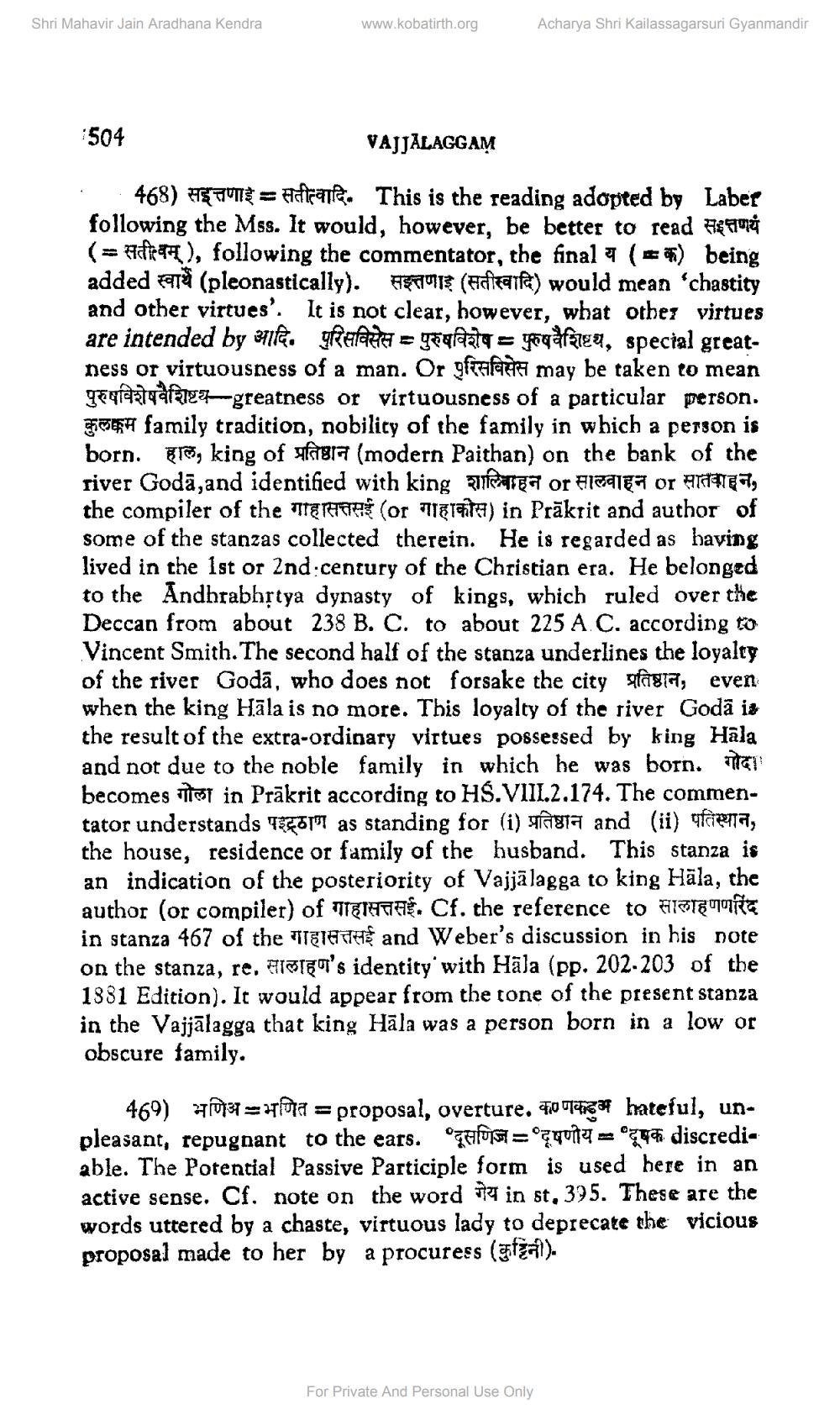________________
Shri Mahavir Jain Aradhana Kendra
www.kobatirth.org
Acharya Shri Kailassagarsuri Gyanmandir
504
VAJJALAGGAM
: 468) HTS = Adana. This is the reading adopted by Laber following the Mss. It would, however, be better to read here (= 4 ), following the commentator, the final 1 ( *) being added स्वार्थे (pleonastically). सक्तणाइ (सतीस्वादि) would mean 'chastity and other virtues'. It is not clear, however, what other virtues are intended by 31. MARE = gepaste yogafstea, special greatness or virtuousness of a man. Or gitaraua may be taken to mean gepraat 128greatness or virtuousness of a particular person.
A family tradition, nobility of the family in which a person is born. gre, king of f1817 (modern Paithan) on the bank of the river Goda,and identified with king शालिवाहन or सालवाहन or सातवाहन, the compiler of the TTETHORE (or TIETTA) in Prākrit and author of some of the stanzas collected therein. He is regarded as having lived in the 1st or 2nd century of the Christian era. He belonged to the Andhrabhstya dynasty of kings, which ruled over the Deccan from about 238 B. C. to about 225 A. C. according to Vincent Smith. The second half of the stanza underlines the loyalty of the river Goda, who does not forsake the city 8th, even when the king Hāla is no more. This loyalty of the river Godā ir the result of the extra-ordinary virtues possessed by king Hala and not due to the noble family in which he was born. Ti becomes that in Prākrit according to HS.VIII.2.174. The commentator understands पइट्ठाण as standing for (i) प्रतिष्ठान and (ii) पतिस्थान, the house, residence or family of the husband. This stanza is an indication of the posteriority of Vajjā lagga to king Häla, the author (or compiler) of TETHTHÉ. Cf. the reference to HISTETTRE in stanza 467 of the TIETETITE and Weber's discussion in his note on the stanza, re. FISICO's identity with Hāla (pp. 202-203 of the 1381 Edition). It would appear from the tone of the present stanza in the Vajjālagga that king Hāla was a person born in a low or obscure family.
469) 01 = = proposal, overture. Fill UAE hateful, unpleasant, repugnant to the ears. Hus=oqquila = " discrediable. The Potential Passive Participle form is used here in an active sense. Cf. note on the word in st, 395. These are the words uttered by a chaste, virtuous lady to deprecate the vicious proposal made to her by a procuress (szal).
For Private And Personal Use Only




